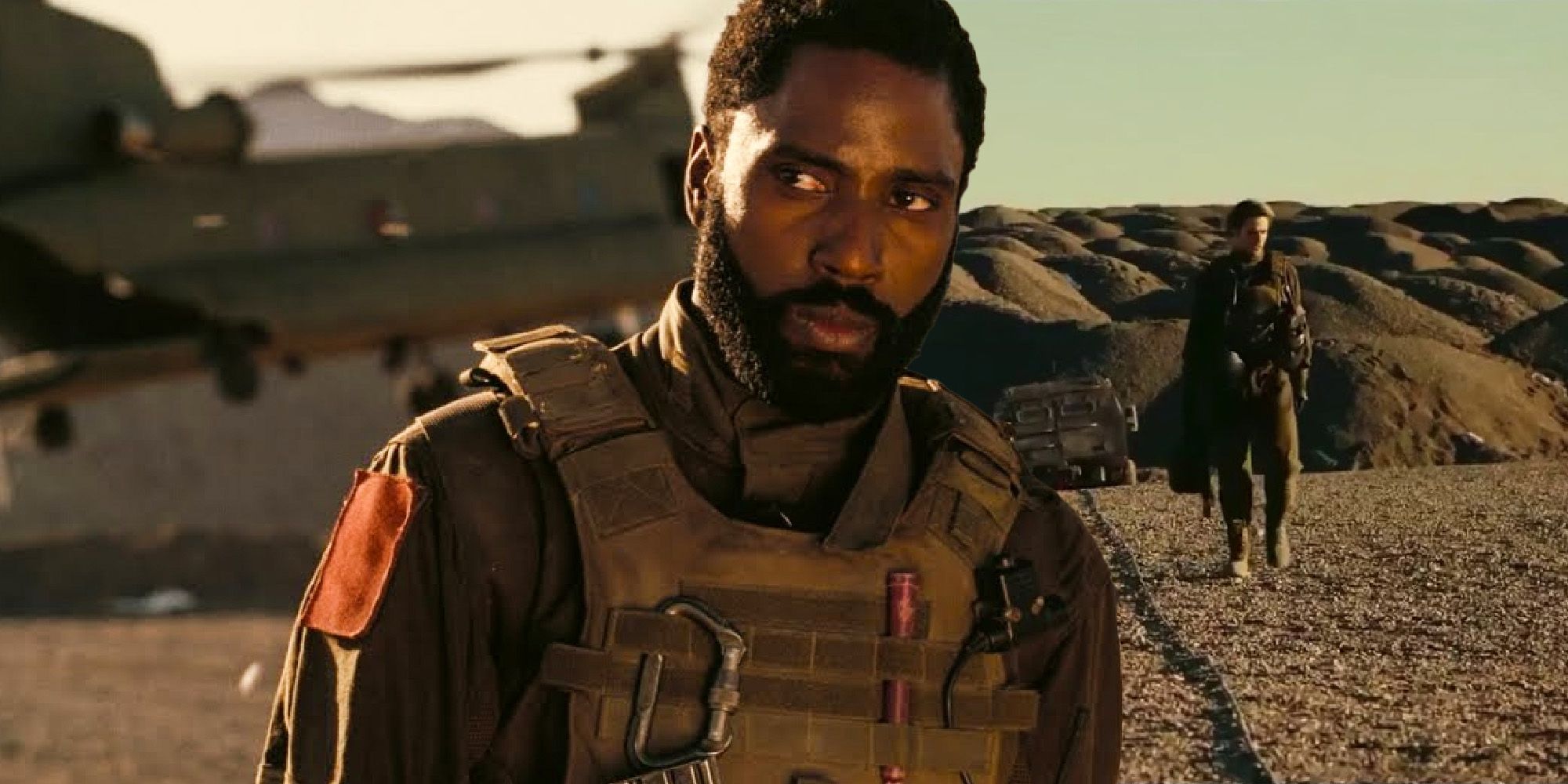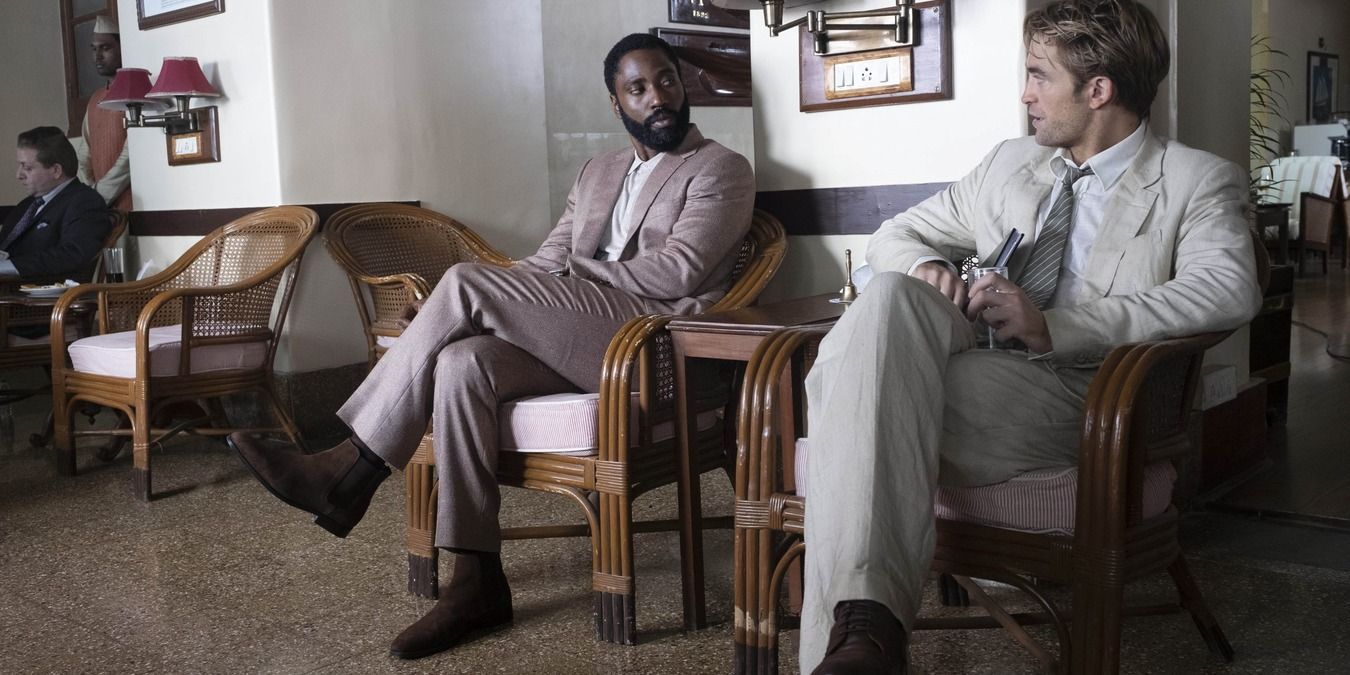
For veterans of director Christopher Nolan's work, the confusing time-travel logic of Tenet comes as no surprise, though audiences would be forgiven for believing that the whole movie is a plot hole. A lot of Tenet's story can be confounding, and with the endless debate about its connection to Inception, it makes sense that viewers would assume that, after a few watches, it'll all start to come together like it did with its 2010 ancestor. But one infamous catch-22 rears its ugly head in Tenet that calls the whole movie into question: the grandfather paradox.
The film's central premise states that The Protagonist (John David Washington) did, after the events of the movie, go on to found the titular counter-terrorism operation, recruit Neil (Robert Pattinson), and set the events of the movie in motion to begin with. Does that mean Tenet is inexplicably confusing? Not necessarily. Compare it, for instance, to the grandfather paradox, a time travel thought problem that proposes one go back in time and kill one's grandfather, thereby preventing that person from ever being born, which in turn would prevent them from going back in time to commit the act, and so it becomes a paradox.
To Tenet's credit, it acknowledges the paradox head-on; Neil brings up that very problem to the Protagonist as he tries to make sense of their temporal situation. But with all the plot points that happen offscreen in Tenet, the grandfather paradox connection becomes apparent. If everything that is going to happen has already happened, that is, if the Protagonist has already founded Tenet in the future, such that its many feelers are appearing during the events of the movie, doesn't that imply that he must have survived the present to have even made it to the future? And doesn't the existence of their present, the future's past, imply that they were successful at stopping humanity's erasure throughout time?

When creating a story for the screen, a writer need always concern themselves with stakes: what is lost if the hero were to fail at achieving their goal? In the case of Tenet, one might question the stakes of the film as a result of this time travel paradox. If the Protagonist was able to form the organization and direct the mission, he certainly couldn't have died in any of the Bond-esque stunts or fight sequences. If the fate of the world - past and present - hinges upon the success of the temporal pincer operation, doesn't the fact that any of this is happening at all mean that they've already succeeded, rendering the stakes moot?
So, in that respect, Tenet is reduced to one big plot hole. But for the purposes of movie watching, we need only listen to Neil's explanation of the grandfather paradox to reach an understanding. He suggests to the Protagonist that becoming entrenched in the thought problem, like a snake swallowing its tail, is frivolous, and that all one needs to do is proceed with faith and take solace in knowing that what's happened has happened. Perhaps a similar perspective can be applied to seeing Tenet. Have faith in its acclaimed writer/director, and take solace in knowing that, stakes or no stakes, the twists and turns of its concept make for an enjoyable ride.
from ScreenRant - Feed https://ift.tt/3hiKLiX





No comments: